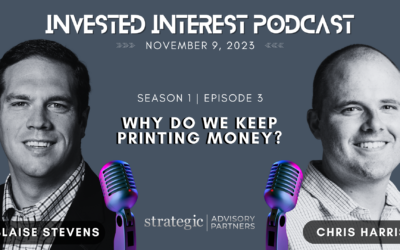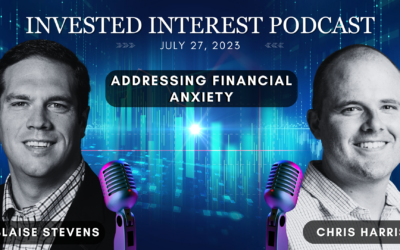Take Your Wealth Management Strategies to
New HeightsNavigating Market Volatility with a Trend-Following Strategy
By maintaining a keen eye on trends, adapting asset allocations, and emphasizing risk management, we show how to navigate these uncertain waters with a steady hand. Our goal is to ensure your investments are poised to thrive, even in the face of market turbulence, providing you with the confidence and support you need to secure your financial future.
Insurance vs. Fee-Only Advisors
When it comes to managing your finances and securing your future, the guidance of a financial advisor can be invaluable. However, not all financial advisors are created equal. Two common categories of advisors you’ll encounter are those who sell insurance products and fee-only advisors. In this blog, we’ll explore the key differences between these two types of advisors, helping you make informed decisions about your financial future.
Guide to Purposeful Giving
Charitable giving is a powerful way to make a positive impact on the causes and organizations you care about. At Strategic Advisory Partners, we understand that aligning your financial goals with your philanthropic aspirations can be both fulfilling and strategically advantageous. In this blog, we will explore the strategies for incorporating charitable giving into your financial plan, including the use of donor-advised funds and planned giving techniques.
Why Do We Keep Printing Money?
In our recent “Invested Interest” podcast discussion, we tackled the complex relationship between rising interest rates and inflation. We explored the purpose behind increasing rates, highlighting their role in encouraging savings and dissuading borrowing as a measure to control inflation. We recognized that the recent influx of newly created money and the mechanics of fractional reserve banking have played their part in elevating inflation rates.
Paying For College
College savings can seem daunting, with horror stories of massive student loan debt. But remember, college grads often earn over a million dollars more in their lifetimes than high school grads, especially in high-demand fields. So, investing in a degree can be wise. How do you fund it smartly without excessive debt? Explore these strategies before considering loans.
Navigating Social Security
Our mission at Strategic Advisory Partners is to simplify intricate financial concepts, making them accessible and comprehensible to everyone. Today, let’s dive into the intricacies of Social Security – a critical component of your retirement strategy. In this guide, we’ll explore the Top 10 Mistakes People Make With Social Security, offering insights to ensure you make informed decisions aligned with your financial goals.
Addressing Financial Anxiety
In this episode of Invested Interest, hosts Blaise Stevens and Chris Harris unpack a startling Bankrate survey revealing that over half of respondents feel their finances negatively impact their mental health. Delving into the role of financial advisors and the importance of financial literacy, they explore practical ways to mitigate financial stress and bolster mental wellbeing. Whether grappling with debt, savings struggles, or general financial uncertainty, this episode provides a refreshingly honest perspective and offers actionable advice to regain financial control. Tune in for an essential discourse on the often overlooked intersection of finance and mental health.
Hidden Fees in Retirement Plans
As a plan sponsor, you have a responsibility to provide your employees with a retirement plan that not only helps them save for the future but also safeguards their hard-earned money. However, many retirement plans, especially 401(k) plans, are riddled with fees that can significantly impact your employees’ savings. This blog post will help you understand the various fees, both visible and hidden, that can affect your retirement plan. We will also discuss the importance of partnering with an expert financial advisor and the benefits of benchmarking your plan to protect your employees’ savings.
Why I Only Buy Toyotas
Because people tend to spend so much money on this particular depreciating asset, I decided to approach the car buying process as a financial decision. If I am going to spend a significant amount of money on a depreciating asset, what are the qualities or characteristics that matter the most to me? I came up with the following list:










